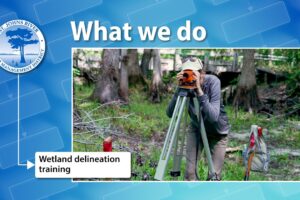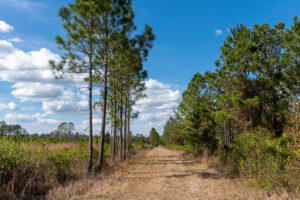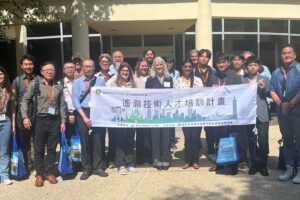H2O Heroes
Water conservation: Everyday people are helping to make every drop count
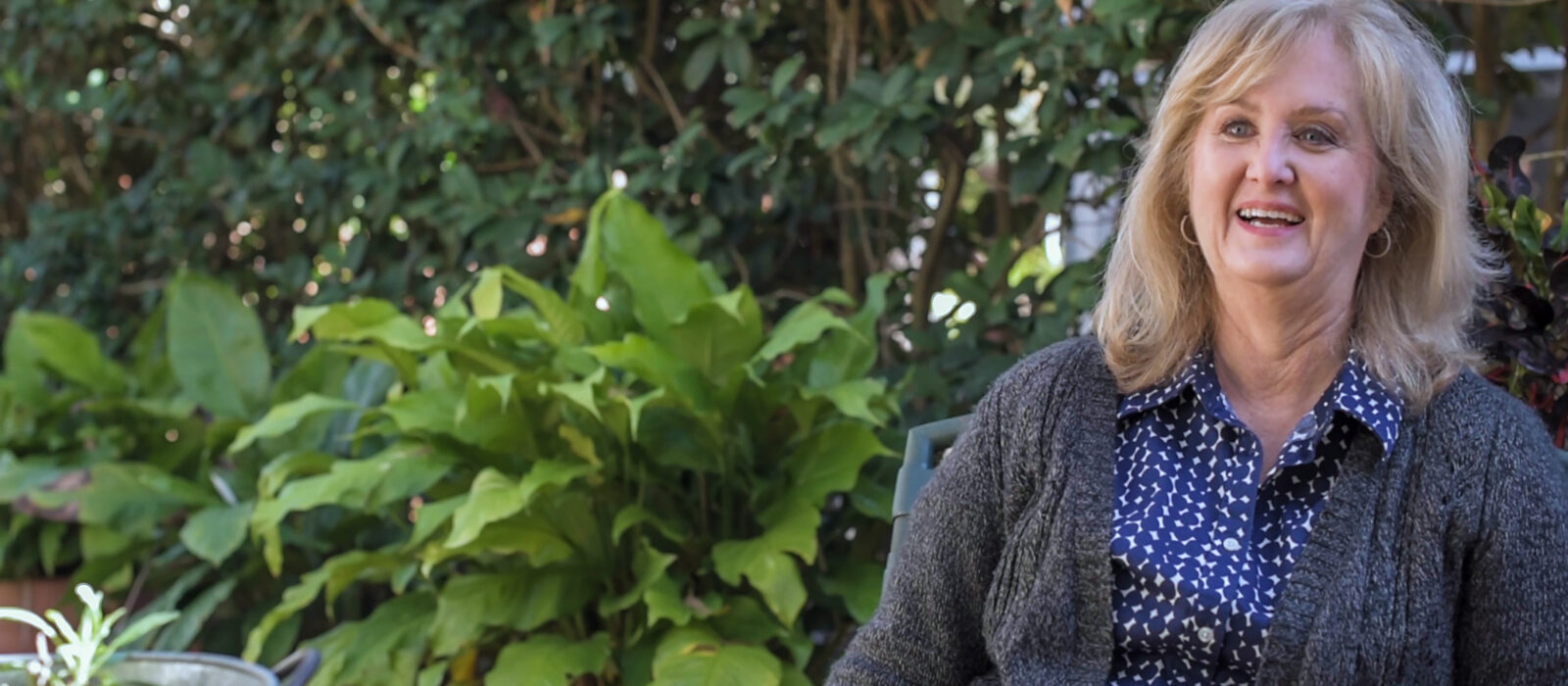
Deborah Weaver enjoys the oasis she’s created in her central Florida backyard. Not only is it beautiful, she’s chosen the right plants for the right places so that they need little to no supplemental watering.
It may be diminutive in size, but Deborah Weaver’s backyard is a private oasis of sun-dappled groundcover, broad-leafed potted plants and clusters of bromeliads. A towering oak presides over the setting, creating a sense of being in a cozy terrarium.
Weaver lives in a Winter Springs gated community, typical of the zero-lot-line developments unfolding across Florida’s landscape. But Weaver’s little piece of heaven stands out as a testimony to the aesthetic and financial benefits of practicing water conservation.
“This whole back area was grass when I moved here in 1997,” Weaver says. “I started in the middle and planted a few things, but I had the impression that grass is beautiful, grass is what we want in Florida. Now, I like it so much better than when it was grass.”
Like many Floridians, Weaver gave nary a thought to her water use until she enrolled in the Florida Master Gardener Program. The 16-week course was an eye opener for Weaver, who had always harbored a love of gardening. As the weeks progressed, she began tracking her home water use and the resulting monthly water bill. She realized she was overwatering her lawn and inadvertently wasting Florida’s most precious resource.
Water conservation is the cornerstone of Florida’s water sustainability.
“I was horrified that I was so uneducated (about water conservation) even though I’ve lived in this state most of my life,” she says. “Now, I don’t have to water. I’ve put in the right plants and made landscaping that I think is beautiful that doesn’t require the watering that St. Augustine (grass) does.”
Weaver’s philosophy on landscaping mirrors the ethos of the St. Johns River Water Management District, whose dedicated staff is committed to water conservation and has been for many years. Every day, District scientists, engineers and communications experts are protecting and ensuring the sustainability of Florida’s water resources, both belowground in the Floridan aquifer system and aboveground in our many waterways.
“Water conservation is the cornerstone of Florida’s water sustainability,” says Dr. Ann Shortelle, St. Johns River Water Management District’s executive director. “It’s only logical that we incorporate water conservation principles into virtually every aspect of this agency. Water conservation not only makes sense, but it is one of the most cost-effective ways to meet current and future water needs.”
As a regulatory agency, the District requires all permit holders to use water as efficiently as possible. For example, water supply utilities are required to implement conservation rate structures, perform water audits to ensure system efficiency and develop programs for the use of reclaimed water.
Permitting requirements for water conservation also ensure industry, agriculture and recreational users, such as golf courses, are combining efficient uses of water with best management practices. The District also offers cost-share funding to local governments and agricultural interests seeking to reduce the volume of water used in their operations and for their customers.
Perhaps the most challenging aspect of water conservation is the art of raising the public’s awareness about the need to conserve this limited resource. Not everyone has the time nor inclination to learn how to change their water use habits in the manner of Deborah Weaver. Additionally, there is a general misunderstanding about the volume of water used in a household and particularly the volume used to irrigate the landscape.
Nearly 900 people move to the Sunshine State every day. Annually, that’s more than 300,000 water users who are likely unfamiliar with the District’s water conservation rules or the demand on Florida’s groundwater supplies. This scenario necessitates the state’s water management districts to tirelessly promote water conservation year-round through watering restrictions, permitting programs, and through outreach/education initiatives such as magazine articles, social media, participation at water festivals and public speaking engagements. The District also sponsors seasonal campaigns, for example “Skip a Week,” which urges homeowners to skip every other week of irrigation during the winter months when lawns are dormant. Online, the District offers information on waterwise landscaping and tips for saving water inside and outside the home. Water conservation is commonly considered the cheapest way to delay the need for a utility to invest in costly alternative sources.
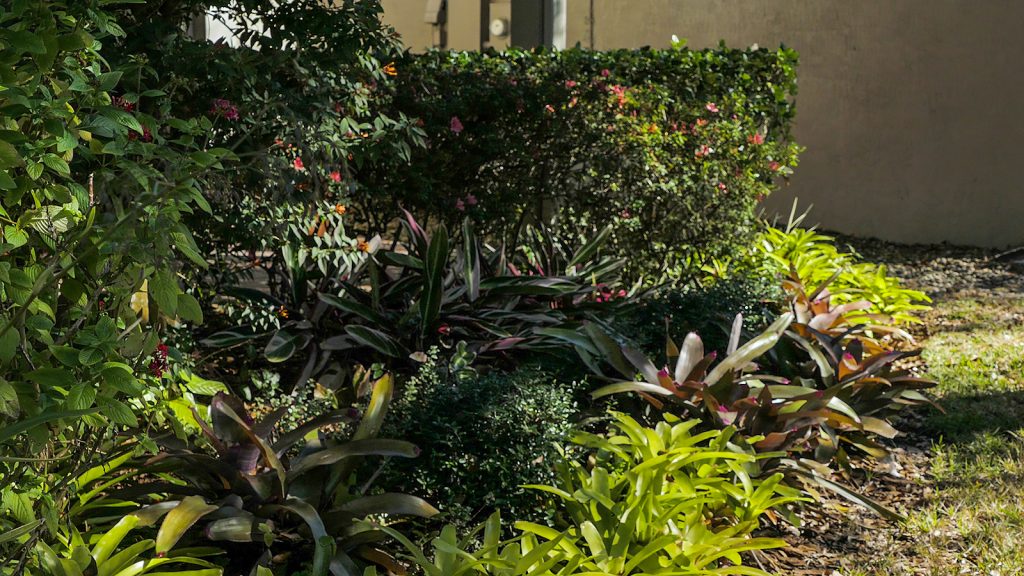
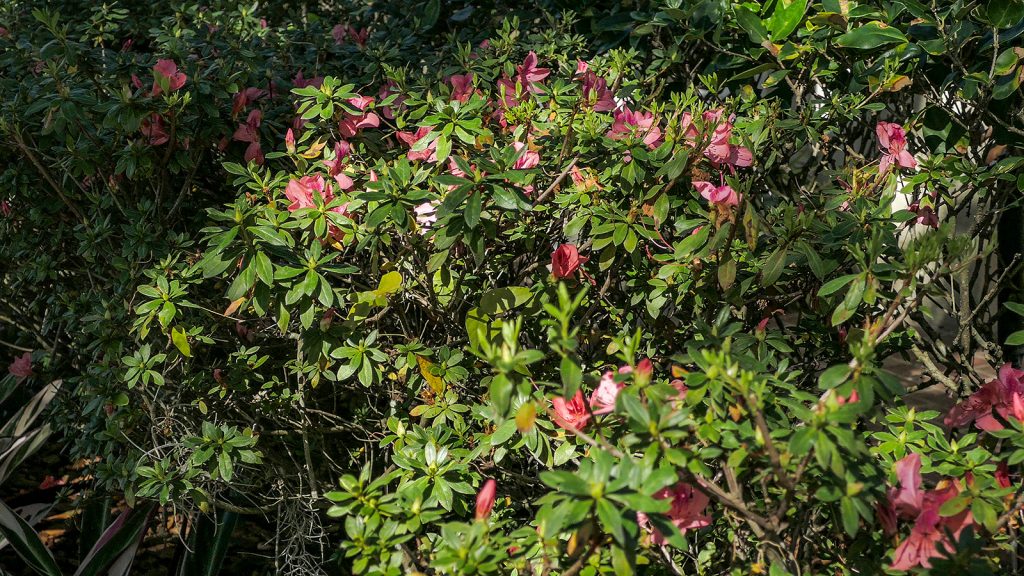
Colorful blooms in spring and splashes of color accent the variety of plants that create the water-saving oasis at this central Florida home.
Deirdre Irwin is the District’s water conservation coordinator. When she’s not facilitating water conservation meetings with utility directors and local government officials, she’s out talking to homeowners, meeting with the public and landscape professionals or assisting the District with its public awareness campaigns and water supply planning efforts. She understands the value of volunteer organizations dedicated to protecting Florida’s water resources and their contribution to the overall mission of conservation behavior change.
“As an agency, the District is grateful for those volunteers who help us in our crusade to raise the public’s consciousness about the need to use water wisely,” Irwin says. “Research has shown that receiving information from peers is the most effective means of affecting change. It’s one thing to receive information from the government, but if your friend or neighbor says, ‘I’m saving money helping the environment by taking these measures,’ you’re more likely to follow suit. The District is always keen to partner up with local groups to help educate and effect behavior change regarding water conservation. I know many of the people in these organizations and I can tell you they are a godsend.”
A prime example is the Volusia Alliance in Volusia County, which uses outreach and education to reach thousands of Floridians, many of them new arrivals who know nothing about the impacts of growth on the state’s remarkable springsheds.
The Alliance, in partnership with the city of DeLand and other organizations, hosts an annual water festival in the spring and a fall water symposium in the historic town of DeLand. Alliance member Sharon Leboffe says the festival drew 2,000 attendees in 2018 and more than 200 attended the last symposium, which included speakers from the District.
“I think we’ve learned that the key is education and making people aware,” says Leboffe, a Florida native who admits that she had never visited a spring until about eight years ago. “The first time I saw a spring I fell in love. It was clean, it was clear. It was like a cool glass of water.”
Soon, Leboffe was visiting every spring in the region whenever her grandson came to visit.
“I heard about the Blue Spring Alliance’s Springs Academy,” she says. “There were incredible speakers. I learned so much. It was like going back to college.”
Leboffe, a member of the Museum of Art in DeLand, joined the Blue Spring Alliance and soon found herself working with enthusiastic people from both organizations to form the Volusia Water Alliance. The Water Alliance merged art and water conservation stakeholder groups committed to bring awareness through education by producing a yearly educational symposium and water festival. Attendance has doubled each year since its inception in 2016.
“People are embracing water conservation once they understand the need,” she says. “It’s like smoking. Remember when nearly everyone smoked cigarettes? Now it’s not cool to smoke. It’s all about creating an ethic. We have to turn people’s attitudes around.”


